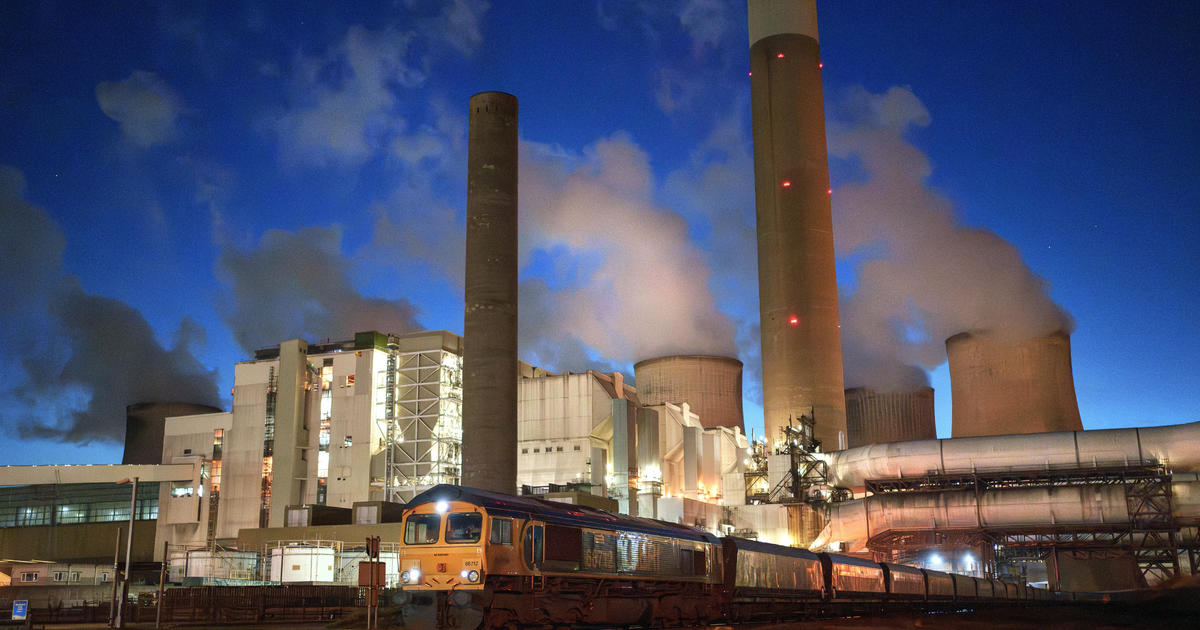The United Kingdom’s complete phase-out of coal-fired power generation marks a significant milestone in its commitment to combating climate change and transitioning to cleaner energy sources. The closure of the Ratcliffe-on-Soar power station, the nation’s last coal plant, signals the end of an era spanning over 140 years, showcasing a bold step towards a greener future and solidifying the UK’s position as a global leader in decarbonization efforts. This transition, however, is not without its complexities, requiring careful planning and strategic investments to ensure energy security and a just transition for workers in the affected industries.
The End of an Era: Coal’s Demise in the UK
The closure of the Ratcliffe-on-Soar power station on September 25, 2023, signifies a definitive end to coal-fired electricity generation in the UK. This momentous occasion follows decades of reliance on this fossil fuel, a period punctuated by both economic prosperity and growing environmental concerns. The plant, operational since 1967, has played a crucial role in powering millions of homes and businesses, contributing significantly to the nation’s energy needs for over half a century. Its closure, however, underscores a significant shift in national energy policy, prioritizing environmental sustainability over reliance on a heavily polluting energy source.
A Legacy of Power and Pollution
For generations, coal-fired power stations were the backbone of Britain’s electricity grid. They represented jobs, economic stability, and readily available power. Yet, the legacy of coal is also inextricably linked to its significant environmental impact. The burning of coal releases substantial quantities of greenhouse gases, notably carbon dioxide, a major contributor to climate change. Beyond CO2, coal combustion releases harmful pollutants such as mercury and arsenic, negatively impacting air quality and human health. The shift away from coal, therefore, represents not just an energy transition but also a crucial step towards cleaner air and a healthier environment.
Economic and Social Implications of the Transition
The UK’s commitment to phasing out coal requires addressing economic and social considerations. The transition needs to ensure a just and equitable transition for coal workers and communities dependent on the industry. Reskilling and retraining initiatives are crucial to support the transition to new employment opportunities within the renewable energy sector and other growing industries. Government investment in infrastructure development to support the expansion of renewable energy is also critical to maintain energy security. Addressing concerns related to potential job losses and the economic stability of affected communities is vital to building public support for the transition to cleaner energy sources.
The UK’s Leadership in Renewable Energy Transition
The UK’s complete phase-out of coal demonstrates its ambition to be a global leader in the fight against climate change. This bold step positions the nation as an example for other countries grappling with the challenge of decarbonizing their energy systems. The transition from coal to cleaner energy sources is not solely a matter of replacing one fuel with another; it necessitates fundamental changes to energy infrastructure, consumption patterns, and policy frameworks. This is a crucial moment to develop cleaner and more sustainable systems to support a cleaner environment, providing further support for transitioning energy systems.
Investment in Renewable Energy Sources
The move away from coal necessitates substantial investments in renewable energy sources like wind, solar, and nuclear power. The UK government has actively promoted investment in renewable technologies. This expansion is supported by further investments in infrastructure, technologies and skilled jobs to further the aims of a low-carbon future. The future of energy will be more diverse and resilient to the volatile energy markets.
International Implications and Collaboration
The UK’s achievement serves as a beacon for international cooperation on climate change. Sharing knowledge, best practices, and technologies can significantly aid other nations in their transitions. By successfully demonstrating the feasibility of completely phasing out coal while maintaining a stable electricity supply, the UK has provided a valuable blueprint and has the ability to further promote clean energy development and global climate action initiatives.
Challenges and Opportunities Ahead
Despite the monumental progress, transitioning fully away from fossil fuels necessitates ongoing effort and strategic planning. Ensuring a stable and reliable electricity supply while promoting sustainability will require ongoing vigilance and policy adjustments.
Energy Security and Reliability
Balancing the need for a clean energy future with the imperative of ensuring uninterrupted power supply remains a key challenge. The intermittency of renewable energy sources, such as wind and solar, requires significant investment in energy storage technologies and smart grid infrastructure to improve the predictability and reliability of the electricity supply. This will guarantee security of supply and minimize any disruption caused by the transition to cleaner energy sources.
Continued Investment in Research and Development
Continuous investment in research and development for improving and optimizing clean energy technologies and energy storage will remain critical for ensuring sustainability in the long term. This investment enables better efficiency in the adoption of renewable energy sources while decreasing the price. Through further innovation of low carbon systems this provides an added advantage in tackling climate change.
Take Away Points:
- The UK’s complete phase-out of coal marks a significant step towards its net-zero emissions goal.
- This transition requires a just and equitable approach, considering the needs of workers and communities impacted by the shift.
- The UK’s experience can be a blueprint for other countries striving to decarbonize their energy systems.
- Maintaining energy security and reliability while promoting sustainability requires ongoing innovation and strategic investments.
- Continued research and development are critical for further improvements in renewable energy technologies.









